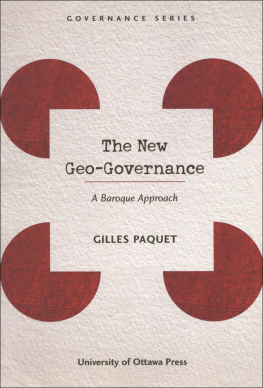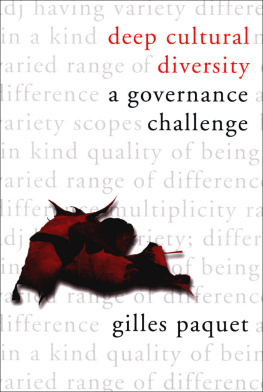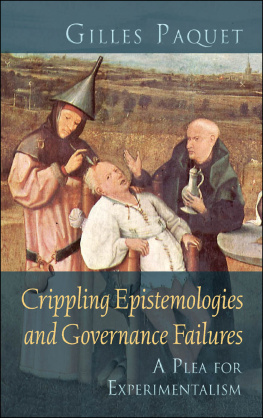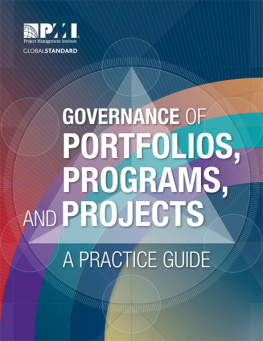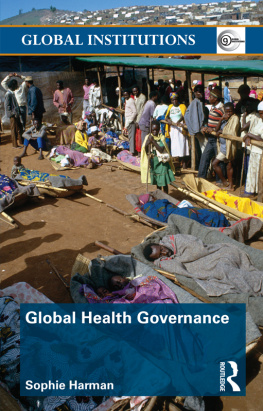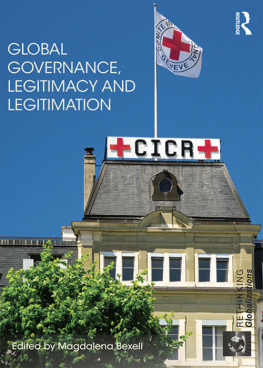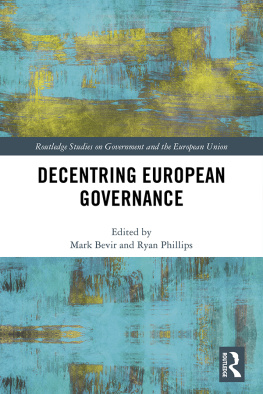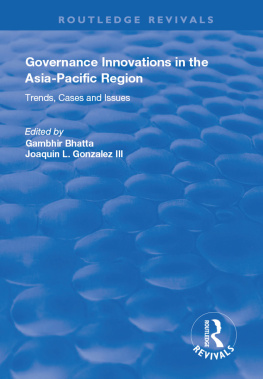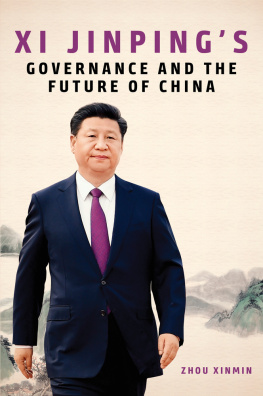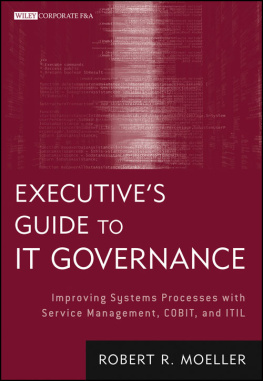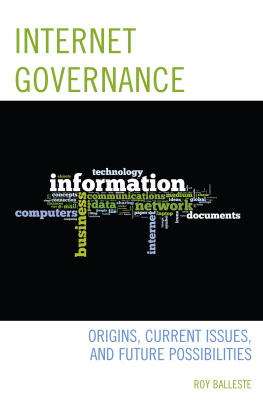The New Geo-Governance
GOVERNANCE SERIES
Governance is the process of effective coordination whereby an organization or a system guides itself when resources, power and information are widely distributed. The study of governance entails probing the pattern of rights and obligations that underpins organizations and social systems; understanding how they coordinate their parallel activities and maintain their coherence; exploring the sources of dysfunction; and suggesting ways to redesign organizations whose governance is in need of repair.
The Series welcomes a range of contributions to the ongoing discourse on governance-from conceptual and theoretical reflections, ethnographic and case studies, and proceedings of conferences and symposia, to works of a very practical nature. The Series publishes works both in French and in English.
The Governance Series is part of the publications division of the Program on Governance and Public Management at the School of Political Studies. Eight volumes have previously been published within this Series. The Program on Governance and Public Management also publishes electronic journals: the quarterly www.optimumonline.ca and the biannual www.revuegouvernance.ca
Editorial Committee
Caroline Andrew
Linda Cardinal
Monica Gattinger
Luc Juillet
Daniel Lane
Gilles Paquet (Director)
The New Geo-Governance:
A Baroque Approach
Gilles Paquet
The University of Ottawa Press gratefully acknowledges the support extended to its publishing
programme by the Canada Council for the Arts and the University of Ottawa.
We also acknowledge with gratitude the support of the Government of Canada through its Book
Publishing Industry Development Program for our publishing activities.
National Library of Canada Cataloguing in Publication
Paquet, Gilles, 1936
The new neo-governance : a baroque approach/Gilles Paquet.
Includes bibliographical references and index.
ISBN 0-7766-0594-1
1. Geopolitics. 2. Territory, National. 3. Natural resources. 4. Global commons. I. Title.
JC319.P26 2005 320.12 C2005-902565-4
Canada word mark
All rights reserved. No parts of this publication may be reproduced or transmitted in any form
or by any means, electronic or mechanical, including photocopy, recording, or any information
storage and retrieval system, without permission in writing from the publisher.
Cover design: Laura Brady
Interior design and typesetting: Brad Horning
ISBN 0-7766-0594-1 ISSN 1487-3052
Published by the University of Ottawa Press, 2005
542 King Edward Avenue, Ottawa, Ontario K1N 6N5
press@uottawa.ca / www.uopress.uottawa.ca
Printed and bound in Canada
To prescribe methods automatically blocks
the development of better methods
Jane Jacobs
Preface
Things fall apart;
the center cannot hold.
Mere anarchy is loosed upon the world
W. B. Yeats
The Forum for the Future of the OECD has produced a most interesting set of studies in the last few years focusing on the prospects for the long-term transformation of our geo-socio-technical systems over the next few decades. While the overall tone of the four reports (on technology, economic growth, diversity and creativity, and governance) has been positive, many perils likely to haunt the current transition period have also been underlined.
The major challenge, identified but addressed only obliquely by the four reports, had to do with geo-governance. It has become clear that the technological, economic, and social dynamisms require new ways to ensure effective coordination in a world where power, resources, and information are bound to be ever more widely and asymmetrically distributed, both organizationally and spatially.
Whether one scrutinizes the economy, the polity, the society, or the technological order, the centre cannot hold. There has been an implosion of all the traditional behemothsand of the models used to map thembe they centrally planned economies, so-called totalitarian or mass society regimes, or centralized information or innovation systems. All modern effective systems have tended to become more decentralized and distributed, organizationally or spatially, or both.
Moreover, the multiplex relationships that used to hold these diverse systems together, and to help them re-enforce one another, have also fizzled out. The old linkage between state, nation, and territory, that provided much of the social glue, has been shaken loose: states and nations (and the related notions of citizenship, identity, etc.) had for us come to be associated with territory, only to now be developing in a more footloose and de-territorialized direction.
As a result, the hierarchical and authoritarian geo-governance nation-state structures that had been in good currency for the last century are proving to be rather ineffective in meeting the coordinating needs of socio-technical systems that are continually stirred by new technologies, globalization, greater social differentiation, and higher interdependency.
At the core of the new geo-governance challenge is the need to improve the basic capacities to integrate, mobilize, and transform our socio-technical systems in fundamental ways: first, by finding new ways to get increasingly heterogeneous and temporary groups to work together; second, by inventing new incentive reward systems, by designing new organizational forms, and by building the requisite degree of trust, integrity, and legitimacy in these structures to mobilize the minds, hearts, and souls of these diverse groups to some form of collaboration; three, by ensuring that the requisite learning loops and infrastructures are in place to catalyze collective intelligence and social learning, and, thereby, to effect the appropriate capacity to transform.
In a nutshell, what is needed is a new regime of geo-governance, capable of providing a chaordic form of integrationi.e., a form of organization capable of mixing chaos and order, of defining ensembles of norms, values, and rules likely to generate concurrently the requisite coherence and instability, for both are required to underpin the sort of social learning, creativity, and resilience that is needed.
Many have simply refused to acknowledge the centrality of this new geo-governance challenge, and/or have denounced the supposedly utopian nature of any new geo-governance regime capable of meeting this challenge. This is neither realistic nor practical. My sense is that we are facing a stark challenge and we have no choice but to search for workable practical responses even if we know that they will be neither simple nor perfect.
What is provided in this volume is an attempt at baroque thinking because it is the only strategy likely to work in the face of such a challenge. We will not search for ready-made solutions, but for ingenious responses. And if, despite the breadth of concepts and the rich harmonies and ornamentation, the responses are messy, and the rough pearls that we distill are not perfectly roundirregularly shaped pearl being the original meaning of the word barroco (Tapi 1961)so be it! Important baroque principles are polyphony, counterpoint, contrast between large and small forces, a struggle between freedom and order: it is best illustrated by the music of Bach, which is marvellously complex, worked out in wonderful structures, and follows all sorts of rules, but in which there is also a lot of breaking of rules.

